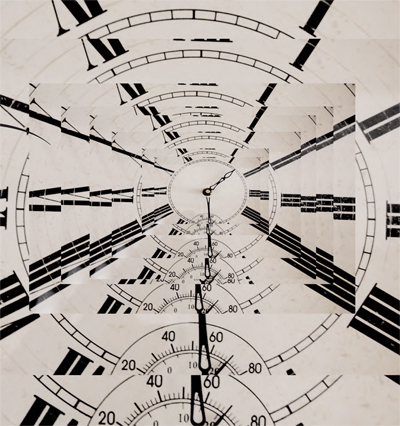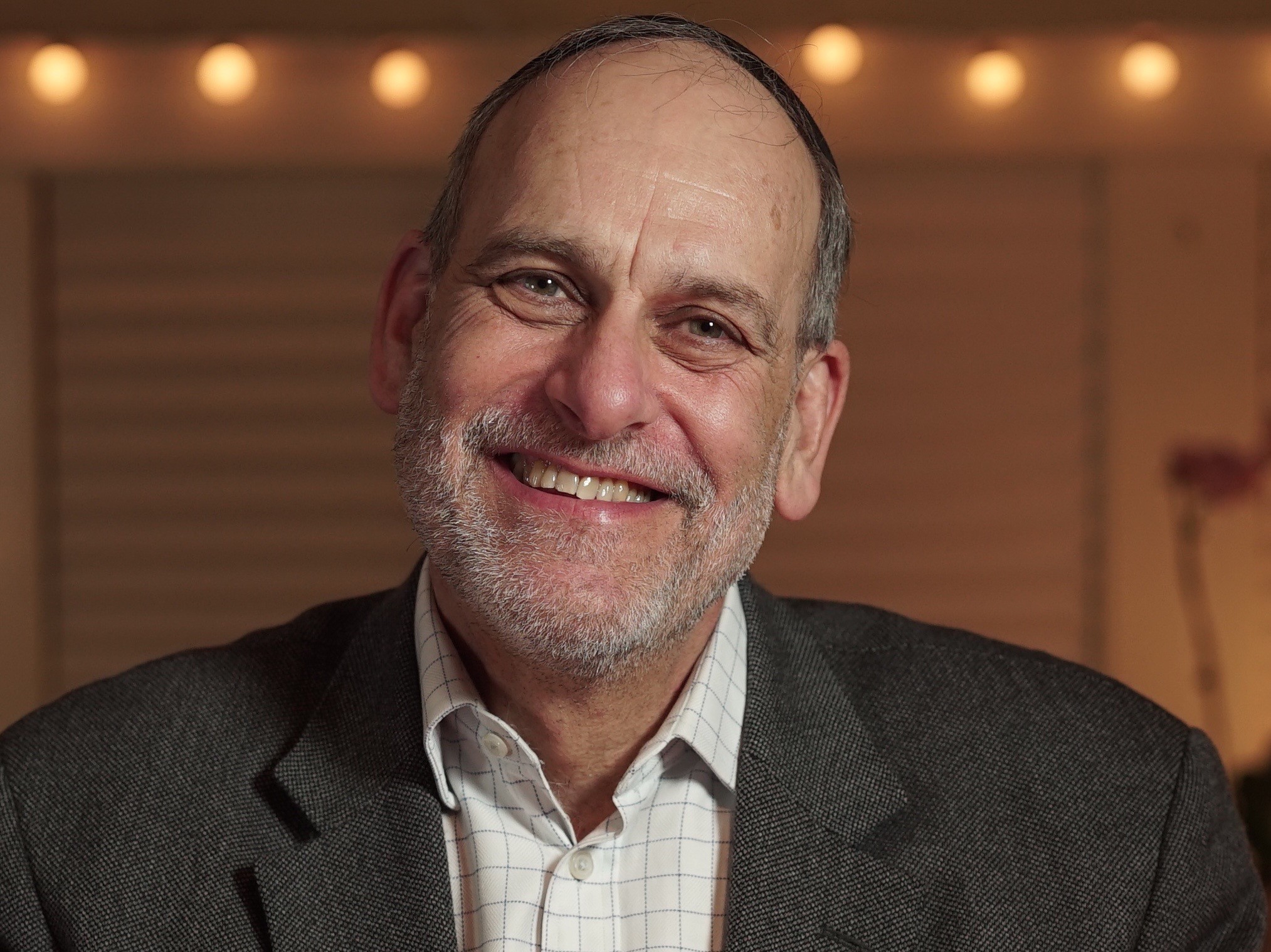Can you remember a time when you weren’t so busy? Instead of making life easier and more leisurely, technology seems to give us so much more to do. We may be able to keep in touch with many more people and get done in a day what once took a week, but who doesn’t feel run ragged? Expectations of us in our jobs, as well as for our children, parents, spouses, and ourselves, rise ever higher. We sleep less, are “on” more, and still many of us can never get to doing what matters most to us.
There are so many costs to living such a depleting lifestyle: a host of illnesses, especially heart and digestive diseases; undermined relationships; lowered work performance; loss of peace of mind. The greatest cost of all is becoming so enslaved to our whirlwind ways of living that we are no longer even aware that there could be another way to live.
We aren’t the first people to draw a connection between busyness and slavery. In the Exodus story, Pharaoh connived to use this insight to oppress his Jewish slaves. When Moses and Aaron approached him to let the people of Israel go free, he issued the following command to the taskmasters:
You shall no longer give the people straw to make bricks, as in the past; let them go and gather straw for themselves. But the number of bricks that they made in the past you shall impose on them....Therefore they cry, “Let us go and offer sacrifice to our God.” Let heavier work be laid on the men that they may labor at it and pay no regard to lying words. (Exodus 5:7–9)
Pharaoh recognized that being consumed by busyness would keep the Israelites from seeking their freedom. Invoking this passage, the 18th-century teacher Rabbi Moshe Chaim Luzzatto identifies an inner Pharaoh we all carry around: the yetzer hara, the inner impulse always at the ready to challenge and undermine our aspirations to be and do good:
One of the clever devices of the yetzer hara is to mount unrelenting pressure against the hearts of people so as to leave them no leisure to consider and observe the type of life they are leading. For it realizes that if they were to devote even a slight degree of attention to their ways...they would immediately begin to repent of their deeds and that regret would grow in them until they would leave off sinning altogether. This consideration underlay the counsel of the wicked Pharaoh in his statement, “Intensify the people’s labors...” His intention was not merely to deprive them of all leisure so that they would not come to oppose him or plot against him, but he strove to strip their hearts of all thought…. (Path of the Just, ch. 2)
When we live chained to tasks, activities, and habits, we lose our capacity to think clearly and deeply about the big picture of our lives, to weigh the questions that will give them purpose and direct them toward our highest potential: Are the things I am doing worthwhile? Will they lead me where I want to go? Will they cause the light of holiness to shine brighter in my life and in the world?
How can we make time for such things? After all, there are emails to answer, posts to “like,” kids to drive to after-school activities, a dog to walk, parents to visit. There’s a meeting at the temple, an opening at the gallery, plus work to get done before tomorrow’s deadline.
Do you have to “hit bottom” and learn the lesson from a heart attack or a divorce, or can you shake yourself awake and choose wisely right now to get off the racing treadmill? The tradition of Mussar, an 1100-year-old Jewish pathway toward fulfilling each human being’s higher potential, can provide guidance on how to change course.
Mussar can come into play when we catch a glimpse of ourselves in the thrall of a negative emotion or pattern of behavior. It teaches that we are most effective in making life changes not by trying to tear down the negative way of being, but by building up a positive pattern that will replace it. For example, a person who wants to counteract a tendency to become angry is not likely to see much result from resolving to be less angry; that’s like asking a fire to be less hot. Similarly for busyness: If we want to bring about enduring change, it won’t be effective just to resolve to change; we need to focus on building up something that is missing from our lives that will have the result of diminishing busyness.
A traditionally Jewish way to begin to do this is to step outside the everyday hustle and bustle one day a week by entering the realm of Shabbat. The Hebrew root of the word Shabbat (shin bet tav) means “to cease” or “to end.” On the Sabbath we are freed from the need to make or to acquire or even to do, so we can focus on our souls and the holiness within, and so restore our bodies, minds, and inner compasses.
The practice of Shabbat is meant to bring wisdom and balance to our entire lives, not give us one day of rest per week, followed by six days of high-speed chase. On Shabbat, we can experience what it is like to slow down and unclutter our lives. We can then apply that lesson all week long. The Mussar method to accomplish that goal involves focusing on strengthening the inner qualities that will help us gain more mastery over the human desires that drive us to be so frantically busy.
The first of these traits is called histapkut, which can be translated as “simplicity” or “contentment with less.” There is so much to want that seems within reach, who can resist? But do we really need most of it? Is it really making our lives richer and more fulfilling? Rabbi Shlomo ibn Gabirol, the 11th century poet and philosopher, put it well: “Seek what you need and give up what you do not need. For in giving up what you do not need, you’ll learn what you really do need.” And that will be enough.
The essence of this practice is to invest in developing the mindset of being content with what you have. Contentment will in turn release you from the endless, unwinnable race to do, have, and be more. Mussar teachers push this understanding one step further: To become even more effective in freeing your life from the slavery to busyness, rejoice in what you have. This is the practice of being sameach be’chelko, joyful in your portion. In the Talmud, Ben Zoma teaches: “Who is rich?” and answers, “Those who rejoice in their portion” (Shabbat 32a).
Our consumer culture wants us to be concerned about what we lack, but what if we focused our sights on the many gifts we receive daily—our freedom, safety, literacy, nourishment, democracy, and so much more? Celebrating what we have instead of focusing on what we lack will loosen the grip that habit and want exercise over us. Yes, we’d still have kids to pick up from school, emails to answer, parents to care for, work pressures, etc., but celebrating what we already have will lead us to moderate our desire to do and get more. Even people who are very busy with necessary responsibilities upon whom others depend will find that taking some time to rejoice over the things in hand allows for choices that can bring about a less driven life.
A third Mussar practice, prishut (“separation”), bids us to identify pursuits that are keeping us too busy for too little return and, with that knowledge in hand, to draw lines around those things we simply no longer need to do. Practicing prishut calls on us to be disciplined in how we run our lives. Many of us can choose to separate ourselves, for example, from our smartphones in the evening or at mealtimes simply by turning them off. We can also make choices about our volunteer activities, such as setting (and defending) a limit to how many hours per week we commit to the cause. Then we can use the time saved for activities we’ve identified as being more important to our quality of life.
All three of these Mussar practices have one fundamental thing in common: you. You must be the one who decides to turn off some of the signals and avoid being drawn into activities that come your way. If you can identify and cut out even one superfluous source of busyness in your life, you’ll see the benefit of that choice. Let that experience motivate you to be more content with less and to celebrate what you already have.
Returning to the story of the Exodus, according to one midrash (Tanchuma, Parshat Beshalach 1) only 20% of the Jews followed Moses out of Egypt. The other 80% were too habituated to their lives, too fearful to unload their burdens and make the break for freedom. In fairness, they were faced with the difficult choice of either maintaining an unsatisfactory life that was at least known or facing a challenging life in the realm of the unknown.
Those who saw the plagues and marched out of Egypt were surely the bravest of our ancestors. Nowadays, there is good reason to think of our hurried lives as a modern-day plague, with the Egypt of our slavery a state of mind. We will have to be just as brave as our ancestors to liberate ourselves from the bondage of our busyness—but what awaits on the other side is worth the journey into the unknown.
Mussar Opportunity for Reform Jews
The Union for Reform Judaism (URJ) and The Mussar Institute have launched the “Seeking Everyday Holiness” program to help individuals deepen self-awareness, gain understanding, and cultivate the inner character traits to foster holiness in their lives.
Through ongoing lessons in Mussar, an 1,100-year-old Jewish pathway toward fulfilling the potential of each human being’s higher nature, as well as facilitated discussions, participants will explore their own personal spiritual curriculum in the safety and with the support of a small group of like-minded seekers. For more information: mussarinstitute.org/URJ


